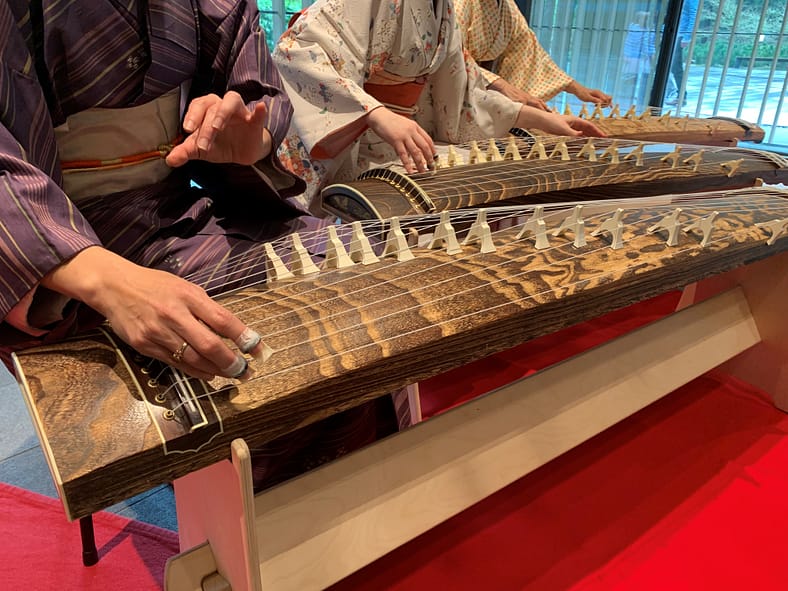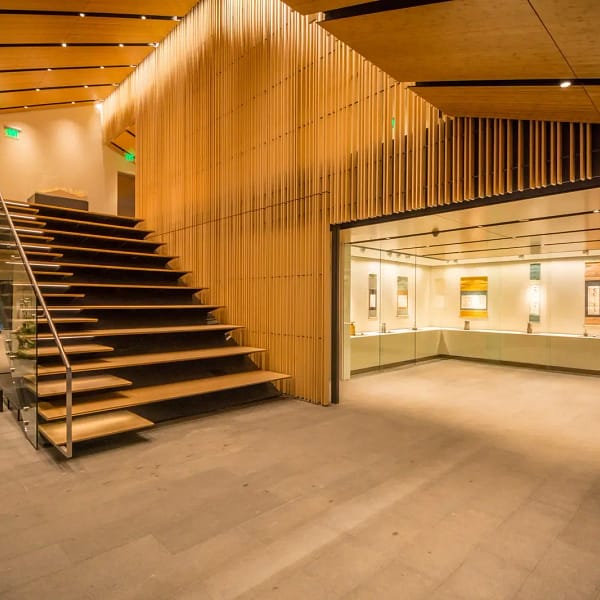
Enjoy a free koto performance by Oregon Koto-Kai at 1:15pm at the Cathy Rudd Cultural Corner in the Jordan Schnitzer Japanese Arts Learning Center. In this family-friendly performance, Oregon Koto-Kai members will also tell a story accompanied by koto music.
About the Koto Harp
The standard Koto harp is a thirteen-string plucked zither. It was introduced to Japan from China through the Korean Peninsula in the 7th century. The instrument has been part of the Gagaku court ensemble for over one thousand years, gradually becoming popular among the merchant classes of the Edo period (1600-1868). An important member of the traditional Sankyoku ensemble, along with the three-string Shamisen and Shakuhachi (bamboo flute), the Koto developed further in a solo capacity, eventually gaining its place as one of Japan’s most prominent musical instruments. Today a varied repertoire along with a wide range of playing techniques provides a wonderful palette of sound textures, making the Koto appealing to audiences the world over.
OREGON KOTO-KAI
Oregon Koto-Kai is a group of people with a passion for Japanese koto, a 13-stringed zither-like instrument with over 1000 years of history. Founded by Mitsuki Dazai in February 2012, the ensemble held its first concert in Portland, Oregon. Since that time, they have performed all over the state at multiple venues each year, including Portland Japanese Garden, Portland Rose Festival and the Oregon Shakespeare Festival in Ashland. Oregon Koto-Kai’s mission is to introduce Japanese koto music to the broader community by creating opportunities for people to attend concerts or take lessons. They collaborate with local musicians, improve players’ skills and add to the cultural diversity in the Northwest. Above all, Oregon Koto-Kai seeks to share their passion of koto with their community and beyond.
